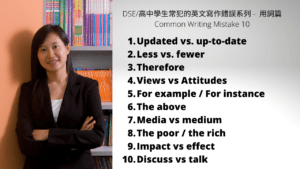IELTS Book 6 Test 3 Task 2 Writing Band 9 pdf1
IELTS 6 Writing Model Essay (Free sample)
Test 3 Task 2 Question
Write about the following topic:
Some people believe that visitors to other countries should follow local customs and behaviours. Others disagree and think that host country should welcome cultural differences.
Discuss both these views and give your own opinion.
Give reasons for your answer and include any relevant examples from your own knowledge or experience.
Write at least 250 words
Test 3 Task 2 Model Essay by an Expert One
Today, many people around the world live in multi-cultural societies and many more people encounter aspects of other cultures through television, the internet and other media. Because of this, when people travel, more and more they expect to be comfortable and for people to adapt to their way of life. Sometimes this expectation can lead to difficulties and disagreements. This expectation can even have a negative effect on the culture of the place these people have come to visit. In this essay I will explore both sides of the argument and try to establish a positive way to experience other cultures and societies.
When people visit cities for specific cultural reasons, these cities may try to adapt and change to be more like what tourists feel comfortable with and expect. In Florence, people expect to eat lots of pizza and look around the churches and famous buildings. As a result, restaurants in the centre of the city only make dishes tourists like and other shops and restaurants the local people need cannot open. All of this means that tourists come and see what they expect. They do not feel uncomfortable in a new culture and so do not learn what it is really like to be and live in Florence or Italy. I believe that being uncomfortable and adapting to a new culture can be a very good way to learn about a new place and to grow as a person. Because visitors want cultures to be welcoming and not make them feel like outsiders, they are unable to experience real cultural differences.
At the same time, some people are so shocked by a new culture that they find their experiences as tourists very unpleasant. This can lead to a dislike of another culture and can equally make visitors feel like they do not belong. Some parts of Ireland are very unpleasant places for English people to visit because of a history of conflict. Many English people remember the IRA bombings, and the Irish remember centuries of English colonialism. Some Irish people do not like English people in their pubs even today. Consequently, these parts of Ireland are not visited by English people. Perhaps, if both tourists and locals learnt to be welcoming, these two countries could start to learn from each other and move forward from the cruelty and crimes committed. Tourism has an important role to play in helping societies understand one another.
The answer is not simple. Both locals and tourists need to learn to be welcoming and to respect each other. Visitors to a culture can learn something from these places and, perhaps, can give something back to the locals. Equally, locals should not feel as though they must adapt to tourists, but must at the same time extend a welcoming hand.
(466 words)


